Can you name the richest person in the world? Odds are you’ll name Bill Gates or Warren Buffett. You wouldn’t be wrong, according to traditional sources. The Forbes Billionaire List is the go-to for tracking the world’s richest people. But what if the list wasn’t entirely accurate, meaning some people with huge fortunes don’t appear on it? Vladimir Putin is one example, and there are others.
Why aren’t they on most lists? Some rich people want to fly under the radar. Money attracts attention, and they’d rather live in peace. Others earned secret fortunes in less-savory ways. Drug lords, for example, won’t show up on the Forbes list. Neither will gangsters or dictators.
The fact is there’s a lot of dark wealth out there. Some estimates put Putin’s net worth around $70 billion. Recently, though, we learned it may be much higher. Still, we don’t see him discussed alongside Gates or Buffett because his wealth is tied up in obscure banks and investments all over the world. The same goes for many other people.
These 17 individuals and families control a vast swath of “dark wealth.” You won’t believe who owns the world’s largest private residence (page 9).
17. Ilham Aliyev: $500 million
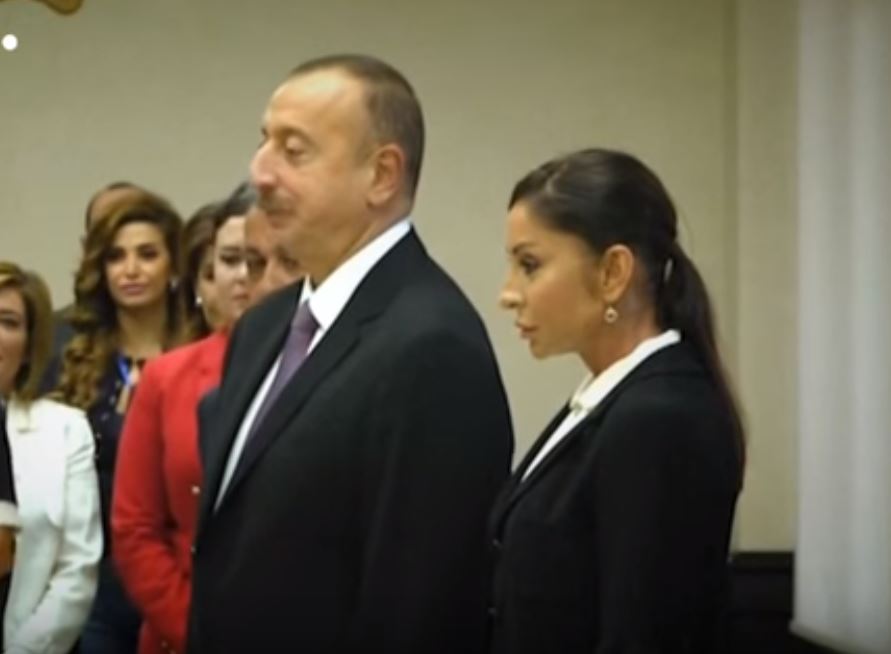
The President of Azerbaijan, Ilham Aliyev, and his wife wait to vote in an election. | YouTube
- No one knows the exact worth of oil-rich Azerbaijan’s former president because he stashes money overseas via investments and properties.
Ilham Aliyev only makes the equivalent of $228,000 annually, but occasional high-profile purchases within Aliyev’s family reveal much more. In 2010, the president’s 12-year-old son bought nine luxury waterfront mansions in southern Dubai for “about $44 million — or roughly 10,000 years’ worth of salary for the average citizen of Azerbaijan,” according to the Washington Post. These type of investments are typical of high-profile politicians and athletes who need to hide money.
16. Wen Jiabao: $2.7 billion
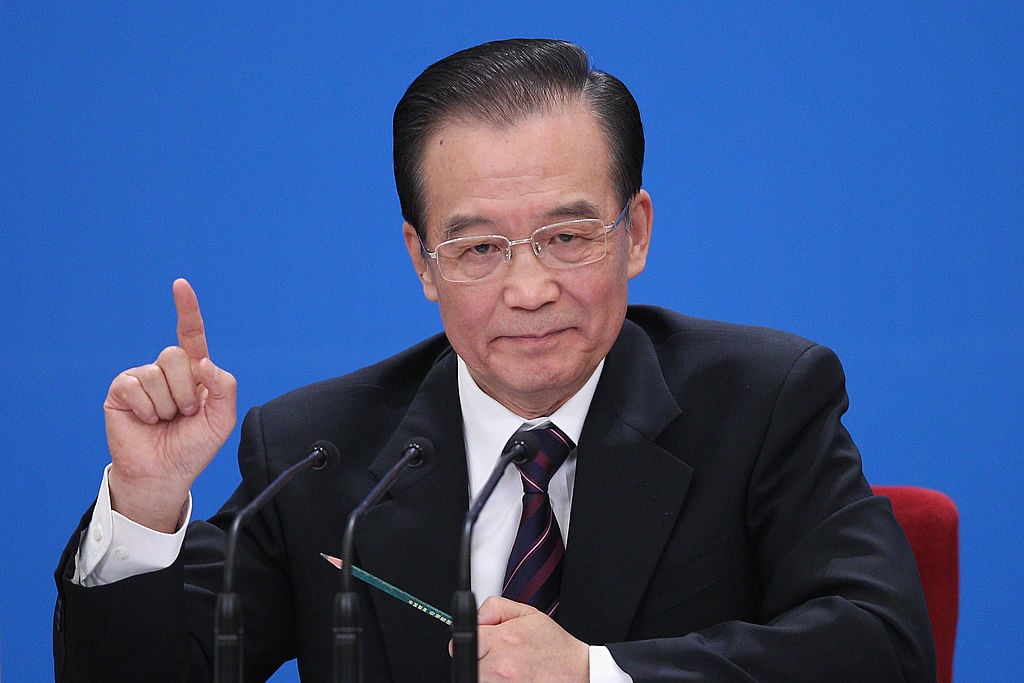
He was the leader of the Chinese government for a decade. | Feng Li/Getty Images
- Wen Jiabao was the head of the Chinese government from 2003 until 2013.
You will find Wen Jiabao’s name in Forbes. But the real interesting thing about the former Chinese prime minister is his estimated $2.7 billion is hidden all over the place through a vast familial network.
A New York Times investigation published in 2012 does a good job of explaining the complicated web of finances that make up the Jiabao fortune, ultimately landing at the $2.7 billion figure. From that investigation, it appears the family — including Jiabao’s mother and children — amassed most of their money while he ran the country.
Next: A surprising female addition to this list
15. Isabel Dos Santos: $3.4 billion
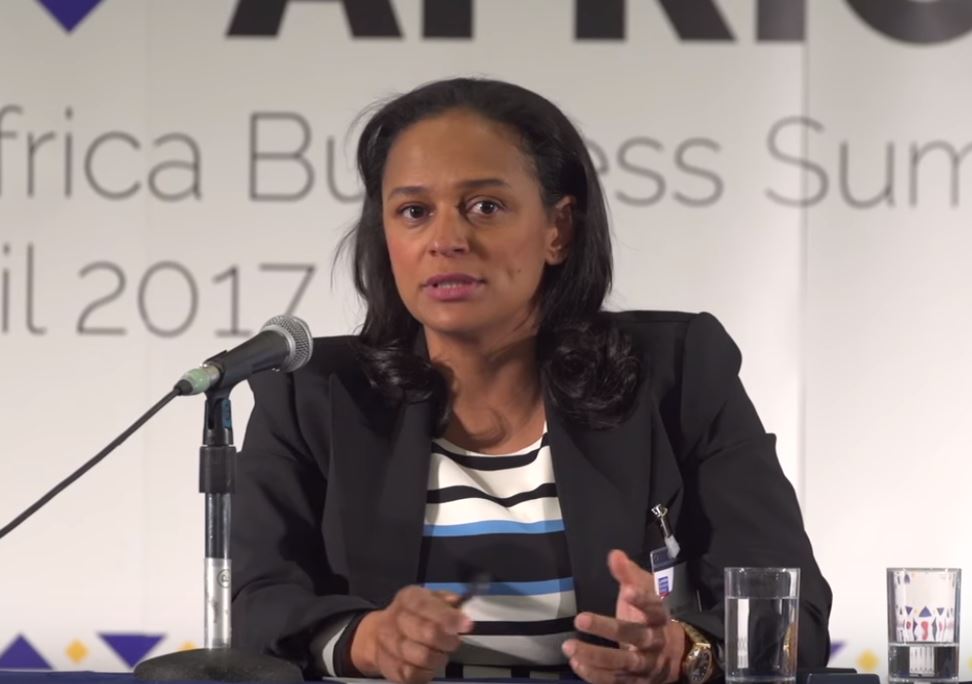
The oldest daughter of Angola’s former president speaks at a conference. | YouTube
- Isabel Dos Santos currently heads the state-run oil company.
Former President of Angola, José Eduardo Dos Santos, has six children from three marriages. His oldest daughter, Isabel, is the richest woman in Africa with an estimated net worth of $3.4 billion.
The country’s wealthy elite — who benefit from Angola’s oil and blood diamond industries — work hard to make sure the poor stay poor. “A great deal of energy is spent trying to remove the poor from the sight of Angola’s hyper-rich,” says BBC journalist Mary Harper. She explains that the poor’s shacks are bulldozed regularly, and the government keeps beer cheap and sponsors concerts and football matches to “distract the poor.” About 90% of Angola’s population resides in slums, living on less than $2 a day.
14. Hans-Adam II: $4 billion
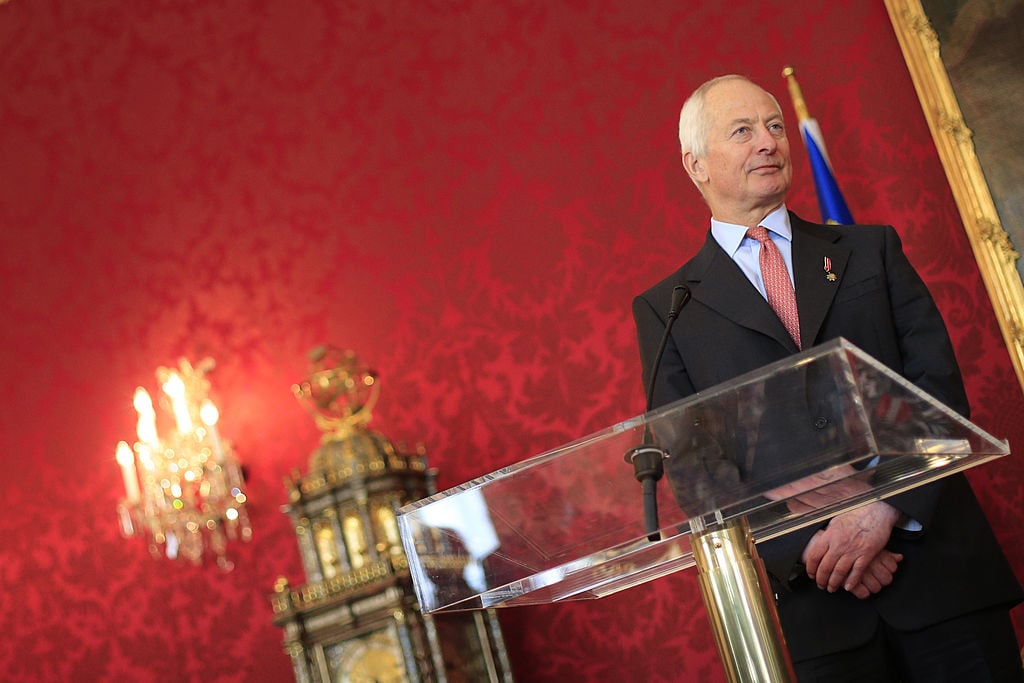
It’s good to be the prince. | Alexander Klein/AFP/Getty Images
- The 72-year-old Prince of Lichtenstein is Europe’s richest monarch.
Who hasn’t dreamed of being European royalty, with billions of dollars to play with and a fun title like “Prince Something-or-Other”? For Hans-Adam II, the Prince of Lichtenstein, that dream is a reality. He’s one of the last remaining monarchs in Europe. And now, at 72 years old, he presides over his family’s bank, investment portfolio, palaces and real estate, and of course its 400-year-old art collection. Not too bad.
13. Kim Jong Un: $5 billion

Most of the money comes from black market trading. | STR/AFP/Getty Images
- “Rocket man” has benefited from the hard and awful work of his father and grandfather.
Seeing as how his family has amassed a fortune by selling off its country’s resources, engaging in cyber warfare, and using slaves, you won’t find Kim Jong Un on Forbes’ list. Though he’s far from the richest man in the world, Kim Jong Un has an estimated $5 billion at his disposal, which he likes to use to buy expensive foreign cheeses and liquors. But most of his country languishes with little food and no electricity.
Next: An Indian mobster and terrorist who’s made an astounding amount of cash
12. Dawood Ibrahim: $6.7 billion
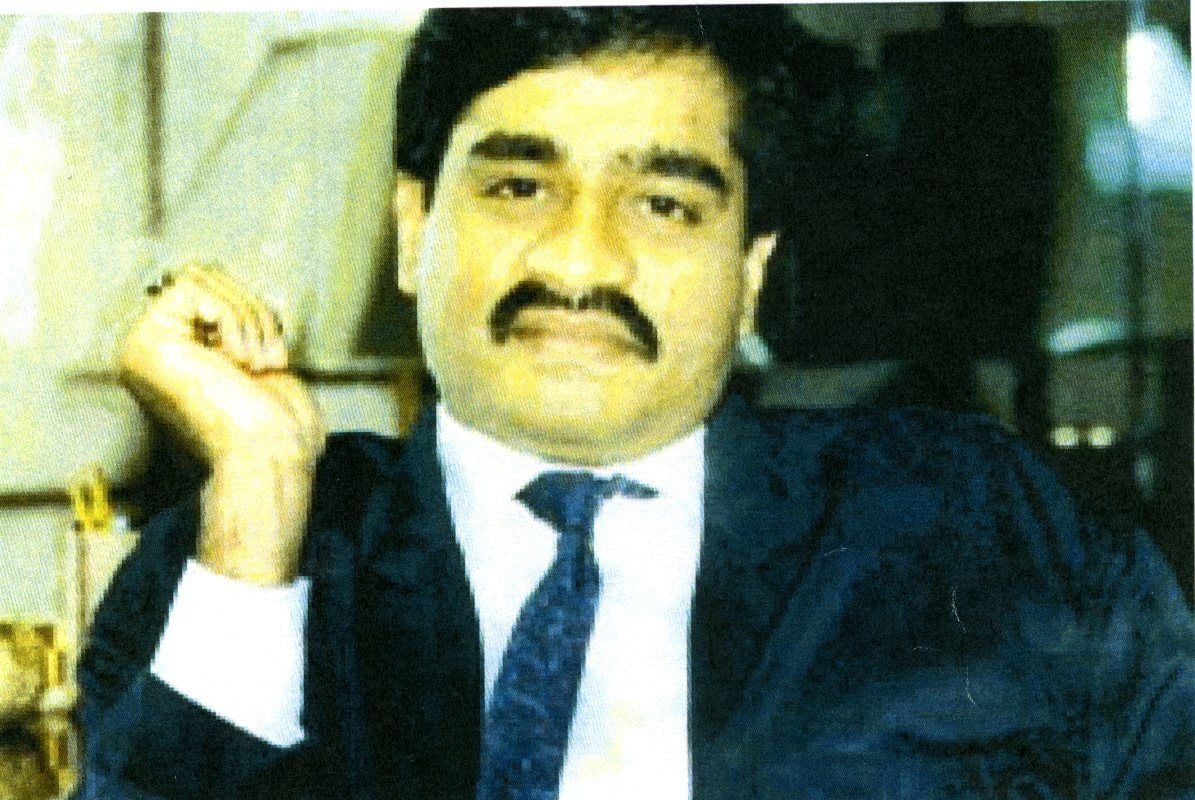
He is a known terrorist and is currently in hiding. | Interpol
- A crime lord and terrorist leader, Dawood Ibrahim runs an organized crime syndicate.
In the United States, we have Tony Soprano. In India, they have Dawood Ibrahim. Ibrahim is a crime lord who runs an organized crime syndicate called D-Company. He founded D-Company in Mumbai during the 1970s, and since then he’s lined his pockets with nearly $7 billion. Ibrahim also has quite the rap sheet. He’s one of the world’s most wanted criminals and is facing charges of murder, terrorism, drug trafficking, and assassination.
Next: This leader owns a ridiculously expensive mega-yacht.
11. Khalifa bin Zayed Al Nahyan: $15 billion
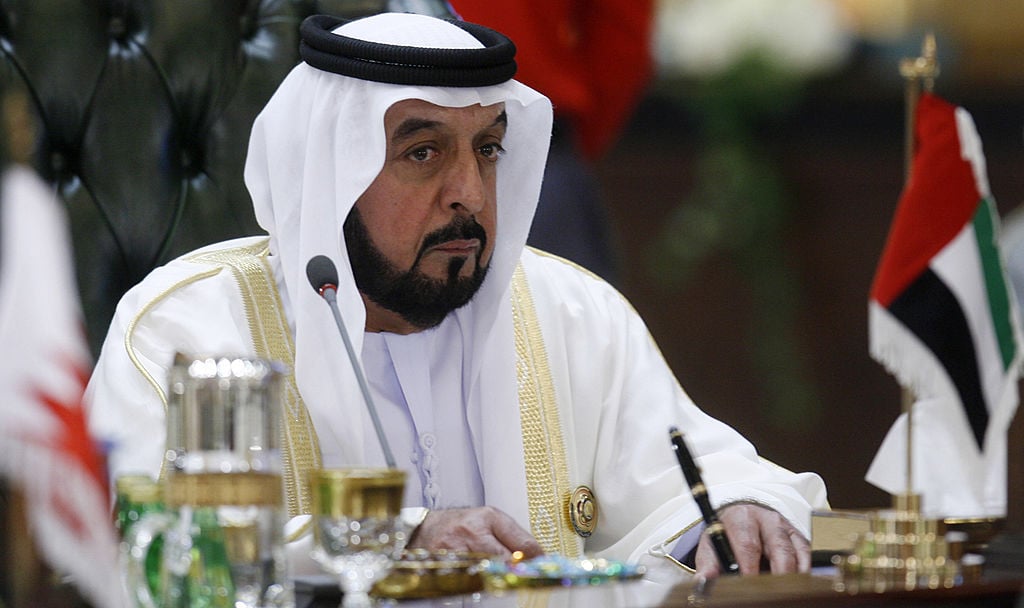
He’s been president for decades. | Yasser Al-Zayyat/AFP/Getty Images
- The president of the United Arab Emirates owns a $622 million megayacht.
These guys in the Middle East know how to soak up cash and resources if that hasn’t become abundantly clear. And speaking of abundance, Khalifa bin Zayed Al Nahyan, the president of the United Arab Emirates, is worth a cool $15 billion. He has served as the UAE’s president since 1971 and has been instrumental in opening up the country to the west. These days, the UAE is a hotbed of business and political activity, with the president raking in a handsome payday as well.
Next: The former president of a nearby African nation who fell during the Arab Spring
10. Zine al Abidine Ben Ali: $17 billion
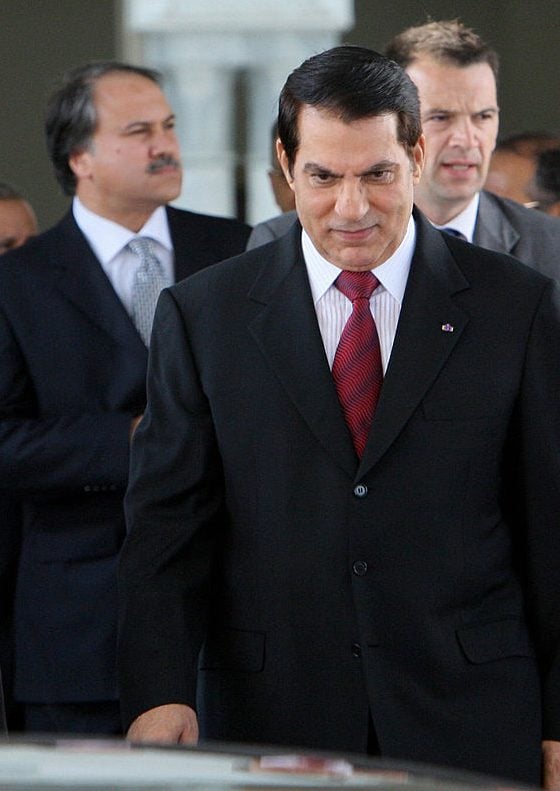
He was ousted from power. | Patrick Kovarik/AFP/Getty Images
- The 81-year-old Zine al Abidine Ben Ali was the president of Tunisia between 1987 and 2011.
We’ll give you fair warning: This list is rich with politicians and dictators from the Middle East who fell from power during the 2011 Arab Spring. Zine al Abidine Ben Ali is one of them. The former president of Tunisia (serving from 1987 until 2011), Ben Ali has a reported $17 billion in assets stashed away. Like other dictators, Ben Ali pilfered Tunisia by socking away billions for himself, much of which has found its way back to the country’s citizens after his ouster.
Next: The man who owns the biggest residence in the world
9. Hassanal Bolkiah: $20 billion
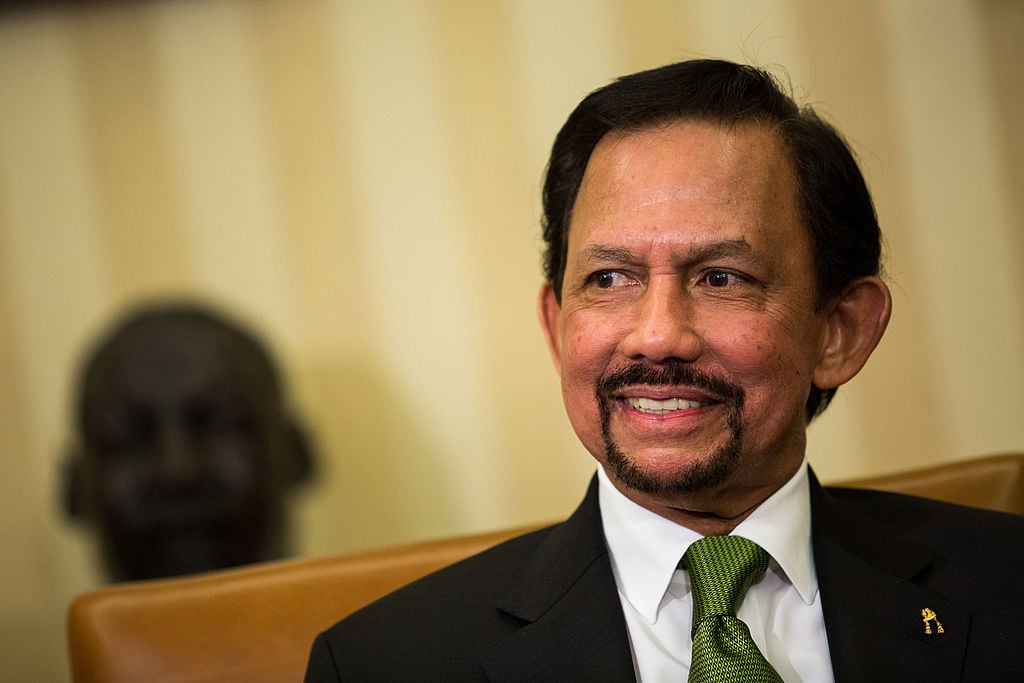
He owns more than 600 Rolls-Royces. | Drew Angerer/Getty Images
- Hassanal Bolkiah, the Sultan of Brunei, owns the world’s largest private residence. It has 1,800 rooms.
Many of us are happy to be able to snag an affordable apartment with more than one bedroom, but the Sultan of Brunei, Hassanal Bolkiah, owns a residence with more than 1,800. His $20 billion worth comes as a result of oil and gas sales and development. The guy also owns more than 600 Rolls-Royce automobiles, to give you an idea of what kind of obscene wealth we’re dealing with here.
Next: More royalty
8. Bhumibol Adulyadej: $30 billion
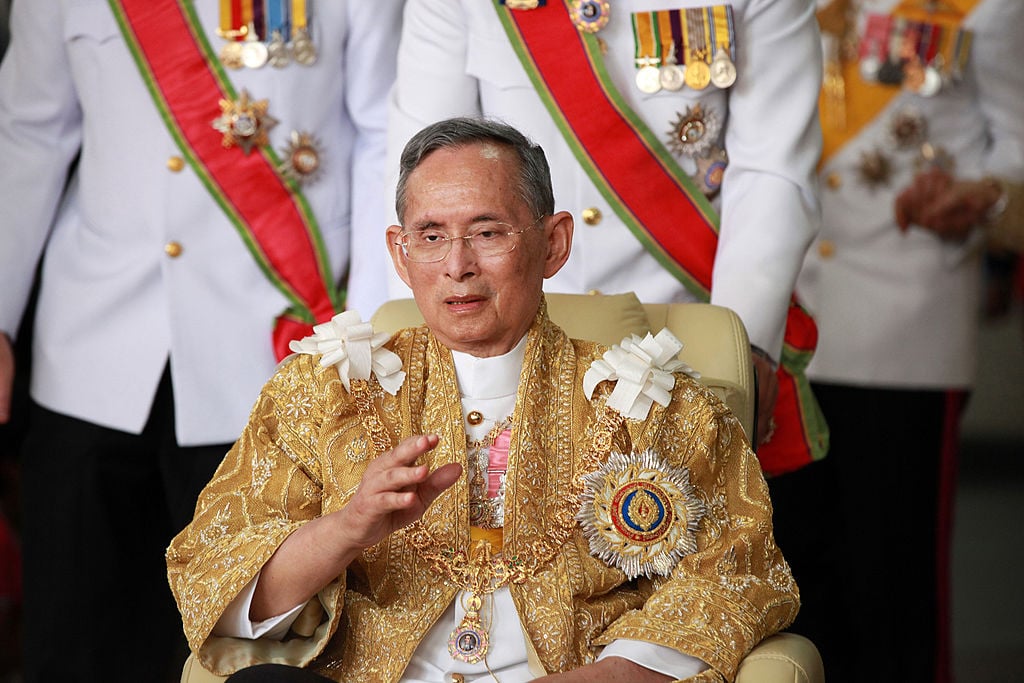
The country went into a period of mourning after his passing. | Pairoj/AFP/Getty Images
- The king of Thailand recently died, but his $30 billion fortune lives on.
The king of Thailand, Bhumibol Adulyadej, passed away in fall 2016. But we’re including him on our list because of his immense wealth and the fact that most people don’t realize just how rich he was. He held the throne for 70 years, during which time he compiled all $30 billion of his fortune. Most of that money came from real estate and property investments, with a lot of it growing as Bangkok became a major international hub in recent decades.
Next: Yet another Middle Eastern leader
7. Ali Abdullah Saleh: $30 billion to $62 billion
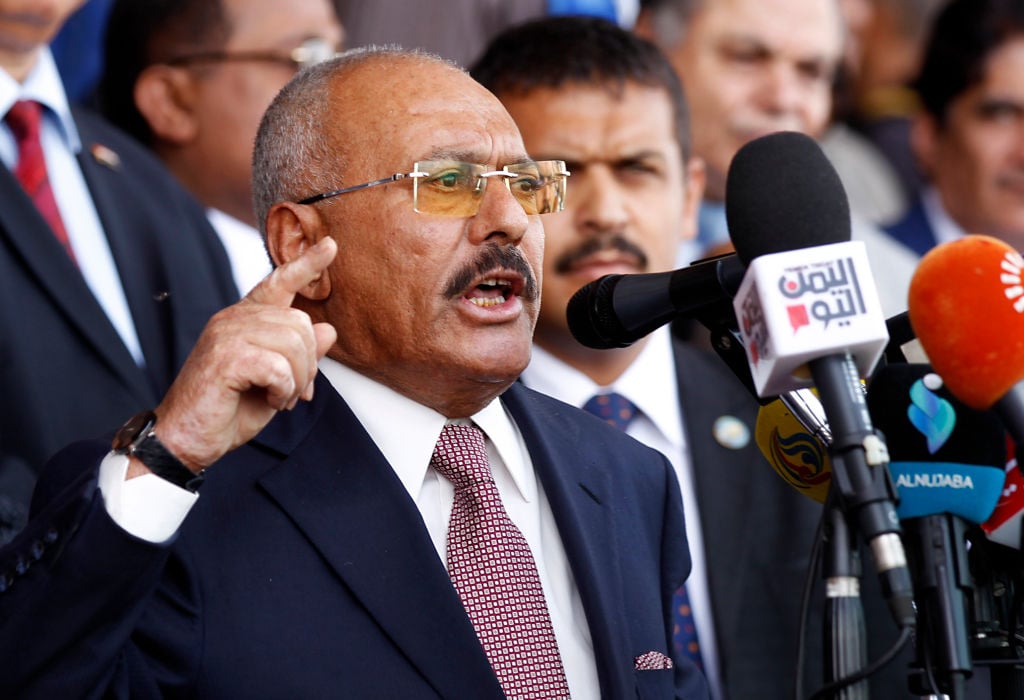
He never even finished elementary school. | Mohammed Huwais/AFP/Getty Images
- Ali Abdullah Saleh is the former president of Yemen and rose to power after his predecessor was assassinated.
If you haven’t had your fill of rich politicians from the Middle East, you’re in luck. Ali Abdullah Saleh fits the bill, as he was the president of Yemen for more than three decades. One interesting thing about him is he actually never finished elementary school and joined the army at a young age eventually becoming a colonel. Like other leaders in the Middle East, he was removed from power during the Arab Spring in 2011 but not before collecting tens of billions for his personal fortune.
Next: An eerily similar story
6. Hosni Mubarak: $70 billion
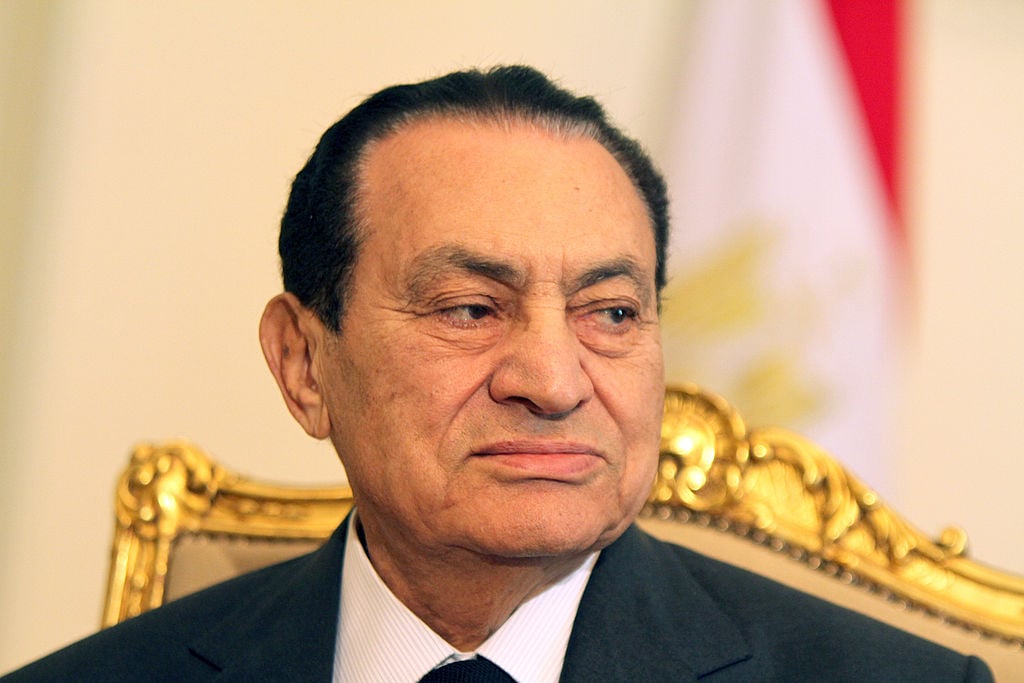
Egypt is still having corruption problems. | Khaled Desouki/AFP/Getty Images
- He is another Middle Eastern leader who was overthrown during the Arab Spring in 2011.
The Arab Spring claimed another victim in Hosni Mubarak, who was overthrown after serving as Egypt’s fourth president from 1981 until 2011. Prior to his career in politics, he was an officer in Egypt’s air force. Now, at the age of 89, he’s living off of the roughly $70 billion he scraped together during his reign. Interestingly enough, an Egyptian prosecutor wrote American media outlets in 2011, claiming the Mubarak family had way more money and assets than anyone realized. The total figure, according to the prosecutor? Upward of $700 billion.
Next: Syria’s sitting leader is also a very rich man.
5. Bashar al-Assad: $122 billion

He is thought to have billions stashed away. | Joseph Eid/AFP/Getty Images
- The Assad family’s estimated net worth varies wildly. But we’ll go with the top-level estimate.
Most of us are familiar with Bashar al-Assad as we have followed the ongoing crisis and disaster in Syria. Assad is another long-sitting Middle Eastern dictator who has more or less used his country as a personal piggy bank. While official estimates put his wealth at a fairly reasonable amount — around $1.5 billion, typically — others suspect he has way, way more than that. Like Mubarak, it’s theorized that Assad’s fortunes are hidden all over and add up to more than $120 billion.
Next: We’re not through with the Arab Spring.
4. Muammar Gadaffi: $200 billion
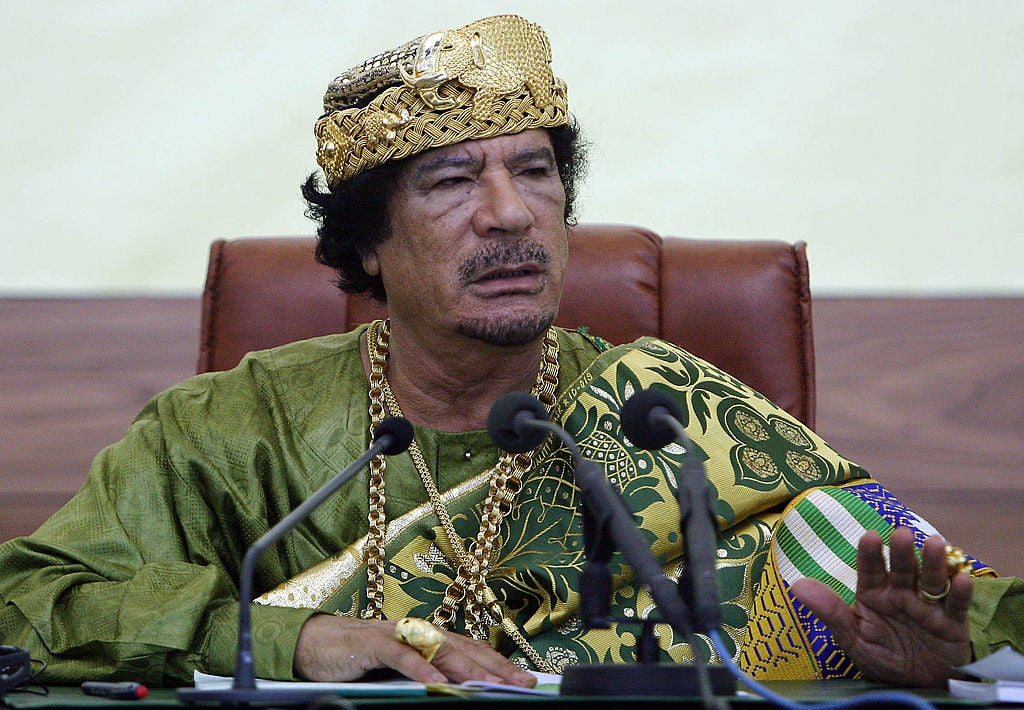
His body was dragged through the streets for everyone to see. | Mahmud Turkia/AFP/Getty Images
- Before being overthrown and killed, Muammar Gadaffi was reportedly one of the world’s richest men ever.
Before he was killed and dragged through the streets, Muammar Gadaffi was the leader of Libya. And, like so many others on our list, he was overthrown during the Arab Spring in 2011. But Gadaffi is different in that he reportedly had an unbelievable amount of wealth, tallying up to as much as $200 billion. When you’re in charge for an entire generation, you evidently can make a lot of money. That’s what Gadaffi did, hiding his wealth in secret bank accounts, real estate, and corporate investments around the world.
Next: A man who’s still alive — and who might just be the richest man in the world
3. Vladimir Putin: $200 billion
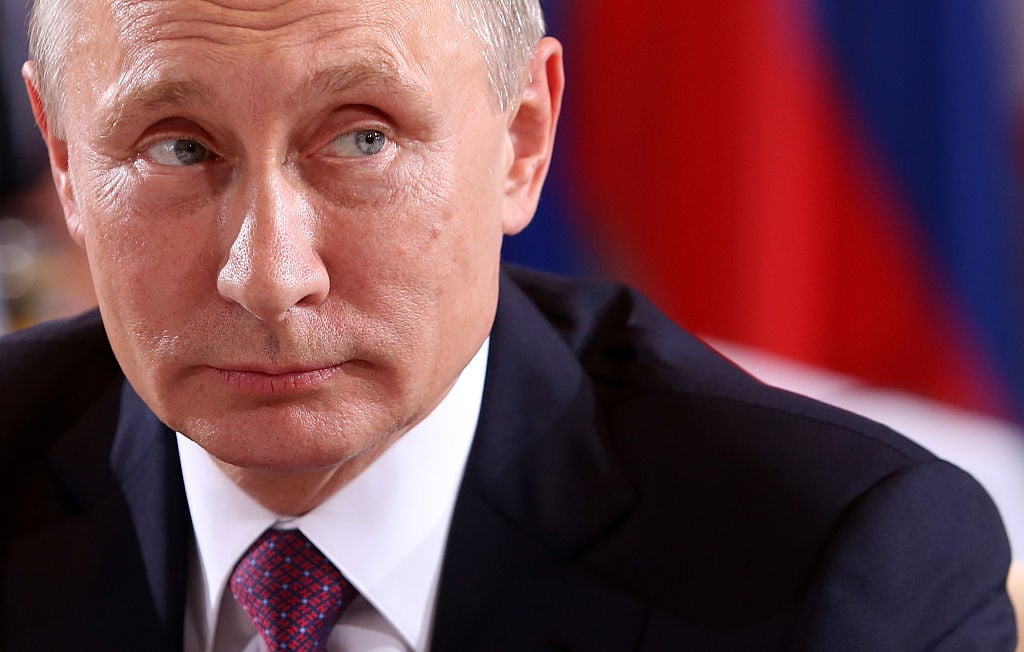
For years, the oligarchs of Russia have been stashing money. | Adam Berry/Getty Images
- Unofficially, Vladimir Putin is the richest man in the world with more than twice as much money as Bill Gates. Again, though, that’s unofficial.
Donald Trump may be rich. But his wealth pales in comparison to a man he seems to admire very much: Vladimir Putin. Putin, of course, is the president of Russia and has served as both president and prime minister since 1999. Over that period of time, Putin and other Russian oligarchs have been at work pilfering billions from their country and stashing it all over the world. Recent testimony from financier Bill Browder (as a part of the ongoing Russia-Trump scandal) estimated his net worth at $200 billion. That would make him the richest man in the world.
Next: We’ll continue on with a couple of staggeringly rich families, which deserve a little recognition for just how much money they control.
2. Rothschilds: $350 billion to $2 trillion

There are three generations of Rothschilds in this photo. | Mehdi Fedouach/AFP/Getty Images
- Some members of the Rothschild family appear on the Forbes list. But combined, the family’s wealth amounts to an estimated $2 trillion.
You’ve likely heard of the Rothschilds. And though there are a few members of the family who make an appearance on the “world’s richest” lists, we’re including the family on this list because, well, the amount of money it has is a bit understated. The family fortune is divided up a number of ways, but when you add it all up you get a number that is estimated to be in the trillions by some. But it’s probably more in the neighborhood of $400 billion.
Next: The richest family in the whole world
1. The House of Saud: $1.4 trillion
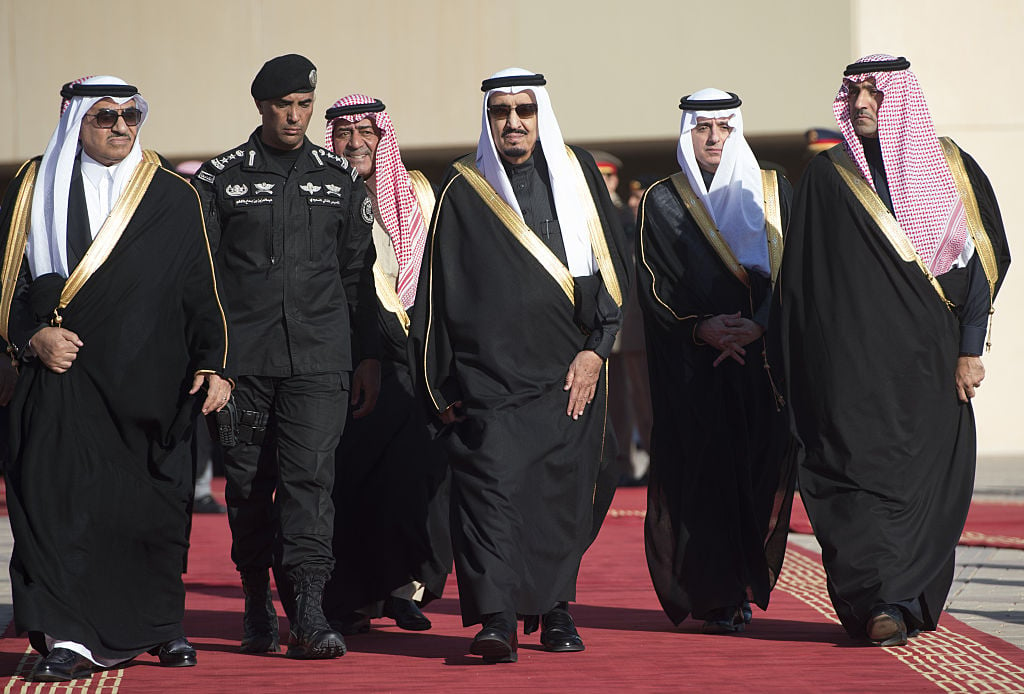
The Saudi royal family is the richest in the world. | Saul Loeb/AFP/Getty Images
- They don’t call it Saudi Arabia for nothing.
With a total fortune of an estimated $1.4 trillion, the House of Saud controls a staggering amount of wealth. As Saudi Arabia’s royal family, the Saudi family has built most of its wealth through the extraction of oil, which has also helped the country gain considerable political influence and sway on the international stage. Salman in Abdulaziz Al Saud, the current king of Saudi Arabia, is worth more than a billion all on his own. But like many others on our list, the family’s wealth is spread far, wide, and away from prying eyes.